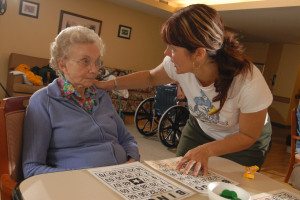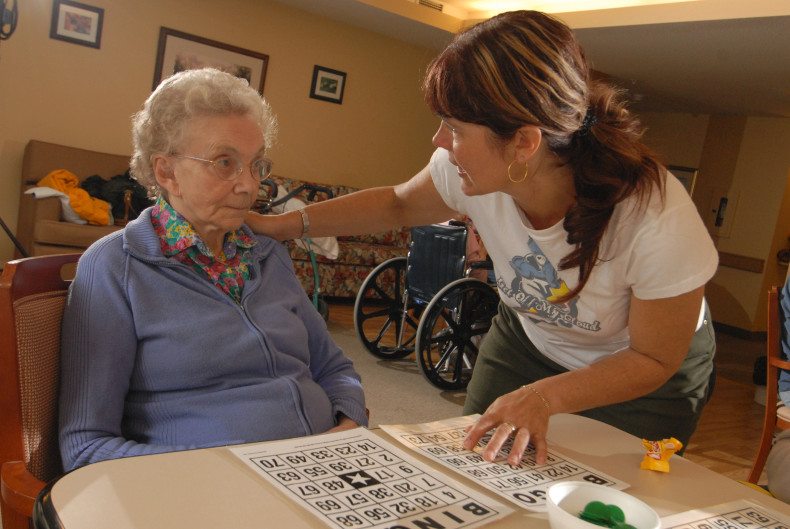 BC’s Seniors Advocate, Isobel Mackenzie, released a report today entitled Caregivers in Distress: More Respite Needed, focusing on the need for greater respite for caregivers of BC’s frail and elderly seniors. The report, which contains no specific recommendations, is the first in a number of reports the Office of the Seniors Advocate is planning to release that focuses on caregivers.
BC’s Seniors Advocate, Isobel Mackenzie, released a report today entitled Caregivers in Distress: More Respite Needed, focusing on the need for greater respite for caregivers of BC’s frail and elderly seniors. The report, which contains no specific recommendations, is the first in a number of reports the Office of the Seniors Advocate is planning to release that focuses on caregivers.
The BC Care Providers Association (BCCPA) welcomes the Senior Advocate’s new report and, in general, supports what is proposed, particularly doing more to support caregivers through greater access to respite services including new respite care beds.
Background
As outlined in the Seniors Advocate report, respite care services offer a short-term break for unpaid or family caregivers, and are largely provided through the following:
- An Adult Day Program where the senior visits a secondary location for up to 7 hours a day;
- In-Home Respite where a community health worker comes to the home to allow the unpaid caregiver to take a break; and
- A Respite Bed where the senior leaves the home and stays in a respite bed in a residential care home for a period of up to 30 days.
The report notes that of the 31,084 seniors in British Columbia who are currently enrolled in the home support system, 29% of their caregivers are experiencing distress, including feelings of anger, depression, conflict, and uncertainty about their future ability to provide care. This increases to 38% for caregivers of seniors with complex care needs.
Despite the high levels of strain caregivers reported, only 7% had used an adult day program in the last seven days, while only 53% used home support in the last seven days, and only 11% used a respite bed in the last year. The report concludes that services to help caregivers have either not kept pace with increased need, or have actually fallen behind. Specifically:
- While the seniors population overage age 75 increased by 12% between 2011 and 2014, the number of adult day program clients decreased by 5% over the same period;
- Between 2005 and 2014, the home support rate per 1,000 aged 75+ fell by 7%; and
- The number of respite care beds fell by 12% over the past three years, from 227 in 2012 to 200 in 2015 (see Figure 1).
The report also found that caregivers in BC are faring worse compared to other provinces. For example, not only do caregivers in Alberta report distress at lower rates than in British Columbia (14% versus 22%), they also report greater access to home support services. In particular, while 65% of caregivers in Alberta had accessed home support in the past 7 days, only 53% of caregivers in British Columbia had.
BCCPA Response
The BCCPA is encouraged to see the Seniors Advocate focus on supporting the caregivers of BC’s frail and elderly seniors, and supports the general directions presented in the report. As outlined in the Seniors Advocate report, the BCCPA believes more should be done to support distressed caregivers by increasing their access to respite through further adult day programs, home support, and respite beds. [quote name=”Daniel Fontaine, CEO, BCCPA” pull=”right”]Given the limited number of respite beds currently in BC and a rapidly aging population there is a definite need to increase such capacity as well as reduce the strain faced by care givers[/quote]
In particular, the BCCPA supports the need for improved access to respite beds, and encourages the BC Ministry of Health and Health Authorities to work with non-government care providers to increase such capacity. As noted by Daniel Fontaine, CEO BCCPA, “given the limited number of respite beds currently in BC and a rapidly aging population there is a definite need to increase such capacity as well as reduce the strain faced by care givers.”
One potential concern with the Seniors Advocate report is the suggestion that respite care beds be consolidated into dedicated respite care facilities, in order to address the issue of “floating” respite beds (i.e. the standard practice of dispersing respite care beds among existing residential care homes). In particular, the BCCPA cautions that further study and evidence on this issue is required, as the current literature on the cost effectiveness of dedicated respite care facilities is mixed.[i] Along with the feasibility of creating dedicated respite care facilities while not utilizing the existing capacity of non-government care operators, the BCCPA is concerned about the implications of creating dedicated respite care homes, especially in more rural areas, where access to home and continuing care is already limited and challenged by geography (see Figure 1).

The BCCPA believes that incorporating respite care beds into residential care homes, including campuses of care, allows non-government care providers greater flexibility in how they provide care, and can help reduce wait times for long-term care. In this regard, the BCCPA will be releasing a report later this year, which will explore new continuing care models that can better address the needs of seniors and aging population, including respite care for the frail elderly. The BCCPA looks forward to discussing this and the Seniors Advocate report further to support the long-term sustainability of the sector, as well as improve seniors care across the province.
[i] Mason, Anne, Helen Weatherly, Karen Spilsbury, Su Golder, Hilary Arksey, Joy Adamson, and Michael Drummond. “The Effectiveness and Cost‐Effectiveness of Respite for Caregivers of Frail Older People.” Journal of the American Geriatrics Society 55, no. 2 (2007): 290-299.





